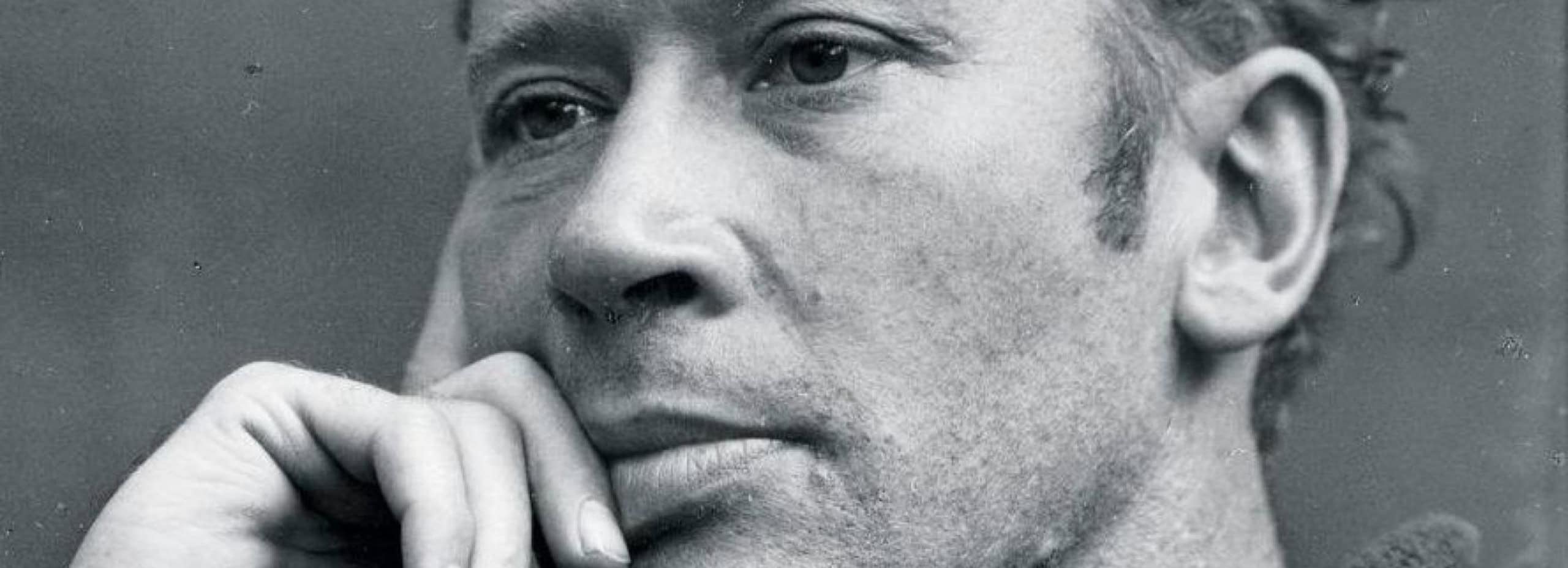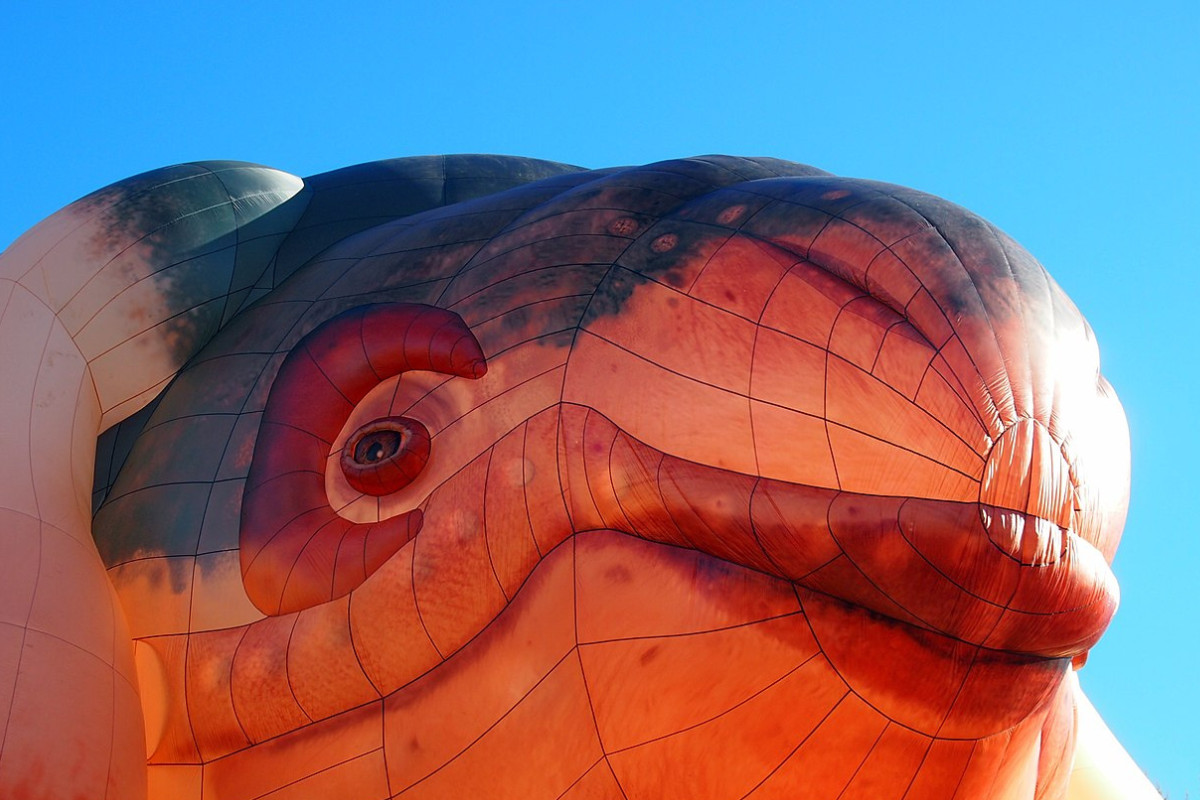
The discrepancy between poetry and everyday language, and the difficulty that many of us have reading and understanding poetry, was once brought home to me by a very able student who confessed that she couldn’t see why people wrote poetry at all. ‘Surely’, she said, ‘the whole point of a poem is to tell a story, or to record an experience, or to communicate a message. We then go to an enormous amount of trouble trying to make out what this story or experience was, or to unravel the message. Why not just write it out in normal or everyday language in the first place?’
What she was saying was that she couldn’t see why people wrote what they had to say in the form of a poem.
Poetry—expressing or obscuring?
The satirist Jonathan Swift suggested that we could do away with language all together by carrying around a sack of all necessary objects on our back and producing one of them at the appropriate moment: no language, no ambiguity, just the thing itself. And certainly no poetry, that gratuitous supplement to reason and normality.
Swift might have been joking but the question remains: why bother writing poetry at all when what the poem means or says can be expressed much more simply and accessibly in plainer language?
Of the two questions we typically ask of a poem, one is a question of content — “what is John Donne saying in “The Canonization”, for example, or Sylvia Plath in “Daddy”? – and the other a question of form: how is it being said? But what is ‘it’, exactly?
Form and content: figuring out what ‘it’ is
These questions, like the question posed by my student, assume that the form and content of a poem are quite distinct; that the form dresses up the content, making it attractive or palatable or striking or ingenious, but it is the content that takes priority. Certainly, this is the assumption behind the neoclassical aesthetics of Alexander Pope:
True wit is Nature to advantage dress’d;
What oft was thought, but ne’er so well express’d
The content — Nature and/or the meaning (‘what oft was thought’)— would appear to remain quite distinct from the expression or dress that is its form. Poetry was the art of finding elaborate new ways of saying the unexceptionable. Just as one can dress differently every day yet remain oneself, so the content or meaning of a poem remains essentially unaltered by the way in which it is expressed.
But poetic language or expression is the poem, the point of which soon becomes obvious when we attend to what a poem is saying and how it is saying it:
yes is a pleasant country
yes is a pleasant country
if’s wintry
(my lovely)
let’s open the year
both is the very weather
(not either)
my treasure,
when violets appear
love is a deeper season
than reason;
my sweet one
(and april’s where we’re)
e. e. cummings
published in 1 × 1, 1944
reproduced under fair use for criticism under the Copyright Act 1968
By using a functional notation from direct speech— the word ‘yes’ — as a common noun, cummings suggests that agreement or accord is not only pleasant in itself, but transforms the whole landscape or ambience, at least for the speaker who gains this vital affirmative. The conditional ‘if’, on the other hand, casts a chill over the speaker’s world; the contingencies or challenges that usually attend upon the word “if” rob the speaker of that gratifying sense of unqualified assent.
The parenthetical ‘(my lovely)’ identifies the immediate audience as a lover or as one beloved. Love itself, or the speaker’s love, has a child-like simplicity and profundity (‘a deeper season’) as it seeks its appropriate time and place, its ‘season’ and ‘country’. To everything, as the prophet Ezekiel wrote, there is a season. And the season of love becomes not only a time of year and more bound to earthly cycles than superficial ‘reason’, but a passion embodied in the internalised and stratified landscape of our being.
Using ellipsis, bare simplicities (the very few adjectival constructions are all clichés), and precise lexico-grammatical transgressions, the poem achieves a paradoxically idiosyncratic conventionality — right down to the final abbreviation ‘we’re’, which merges the two words ‘we’ and ‘are’ in an existential copula, just as the poet would merge with his lover (‘both’, after all, ‘is the very weather’). The ostensibly banal references to the beloved — ‘my lovely’, ‘my treasure’, ‘my sweet one’ — are estranged or defamiliarised by their context and cummings is able to suggest, by uttering his clichés in such an eccentric way, an experience or anticipation of love that is at once common and eternal (compare Ezekiel), yet at the same time intimate and peculiar to the speaker.
A rebellion against ordinary language
As it happens, the specific kinds of language-use traditionally associated with poetry that we call figures of speech – metaphor, synecdoche, metonymy, and personification; tautology, oxymoron, ellipsis, and so on – can all be found in everyday speech. But everyday speech simply will not tolerate their self-conscious or too frequent usage, which is usually met by the demand to ‘say what you mean’.
More often than not, at least since the early nineteenth century, poetry has sought its most expressive means in the distortion or violation of everyday language. It is only by pressing beyond the limits of everyday meaning and syntax and grammar that the poet can explore vision and emotion beyond the limits of common sense encoded or enshrined in common language.
In other words, only through both a systematic yet idiosyncratic violation of everyday language can the poet explore beyond the ordinary apprehension and expectations to which our lives and language habituate and limit us.
Creating the universe anew

Since the Romantic period, moreover, the notion of a single, simple reality, as the independent object of human perception and human knowledge has become less and less acceptable. The prevailing belief has been that poetry contributes to the construction not of reality, but of different realities, different ways of seeing and valuing. With the growth, first, of philosophical idealism, of phenomenology and philosophical pragmatism, and recently of some of the more controversial forms of philosophical scepticism, it is now preferable to think of reality not as something fixed, permanent, and out there, but as responsive to our interest and investment in it.
In his Lines Written a Few Miles above Tintern Abbey, William Wordsworth talked of a mighty world of eye and ear: ‘both what we half create | And what perceive’. Poetic language, while remaining partly referential, also endows or modifies reality, compelling us ‘to feel that which we perceive, and to imagine that which we know. It creates anew the universe after it has been annihilated in our minds by the recurrence of impressions blunted by reiteration’ (Percy Bysshe Shelley).
By drawing attention to itself, then, poetic language simultaneously talks about and revises the world that we experience, feel, and think.
The only way poetry “is to be recognised as anything more than a minor art”, writes the modern Irish poet, John Cassidy, is “by keeping open possibilities in the language, modes of thinking and feeling which would not otherwise be registered. It may not purify, but it could extend, the dialects of the tribe”.
What poetry does is to refresh, to deepen, even to complicate our experience by encouraging an acute awareness of language; an awareness of the sound and the sense of the words and verbal constructions that we daily and habitually use. Because our experience of the world and our consciousness of ourselves are both contained in, and expressed by, language, by making us attend to language more thoughtfully and feelingly – indeed by making us wrestle with the language sometimes – poetry stimulates the revision and revitalisation of this experience and consciousness.
In other words, by making us more aware of the language that we use, poetry makes us simultaneously more aware of the world and of ourselves.



